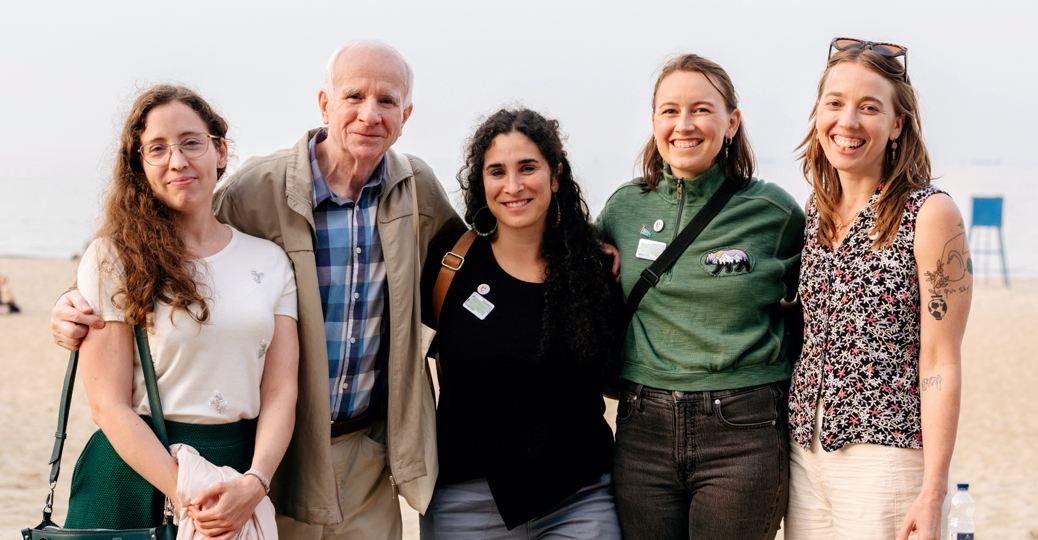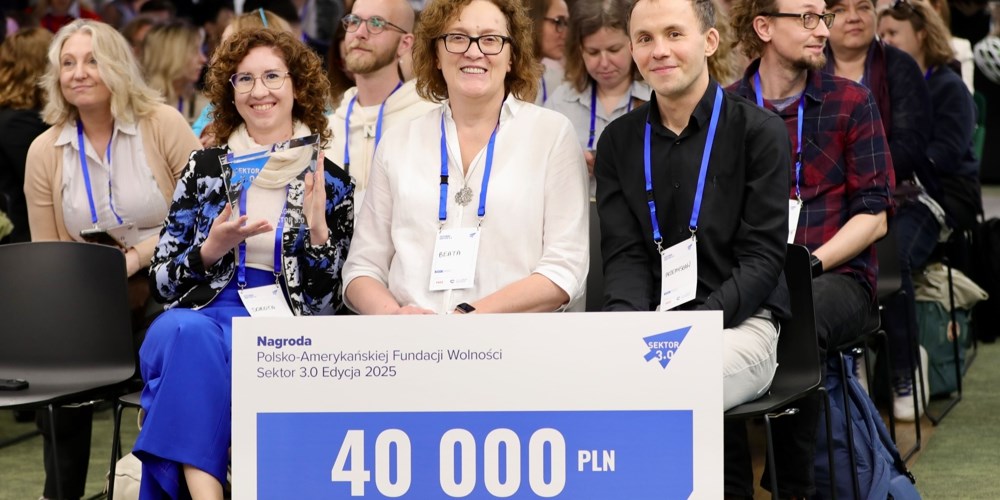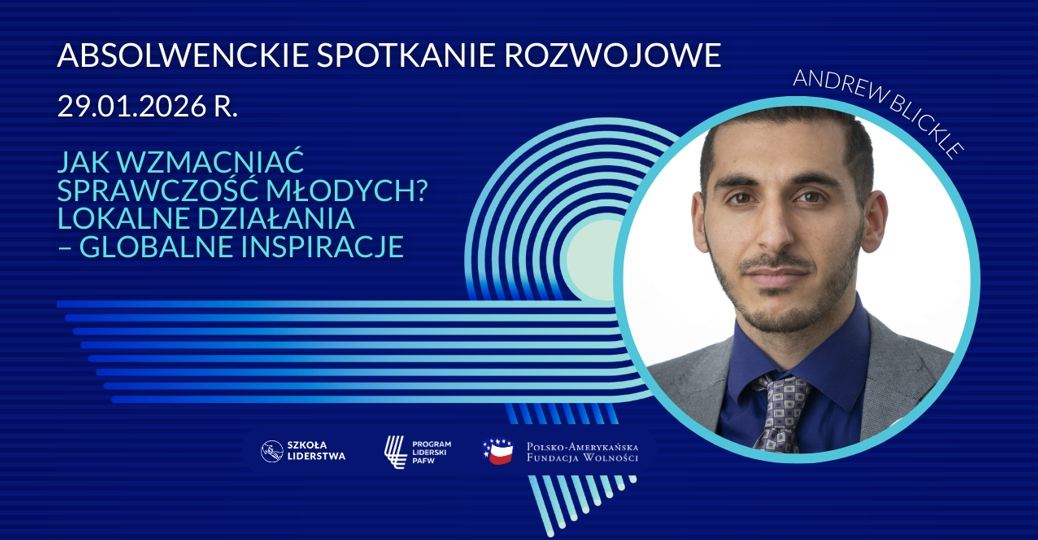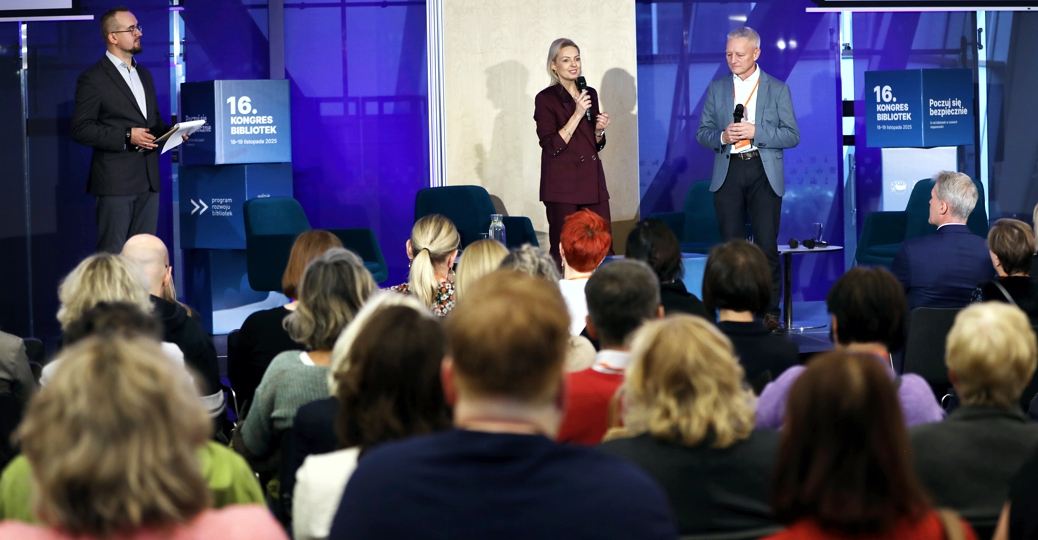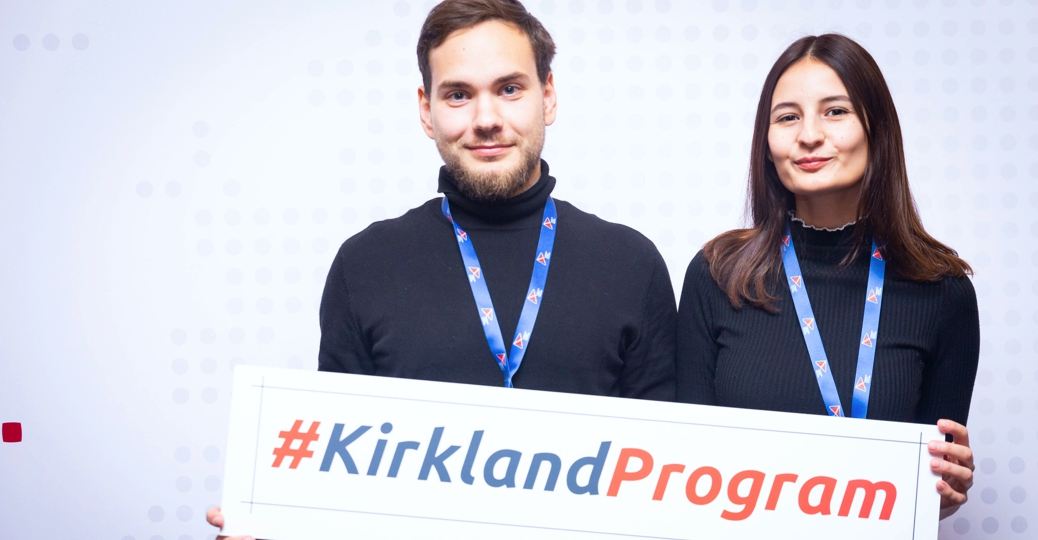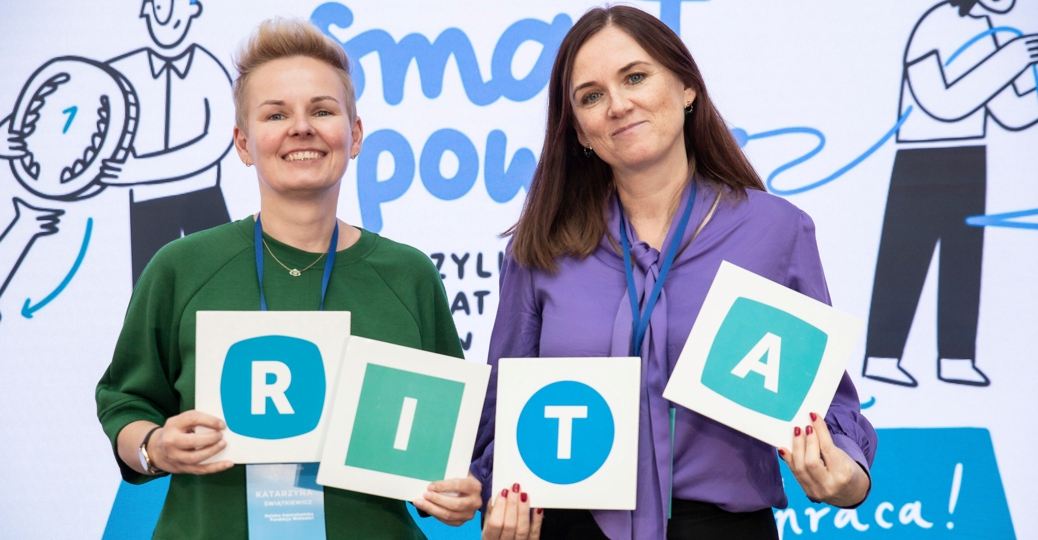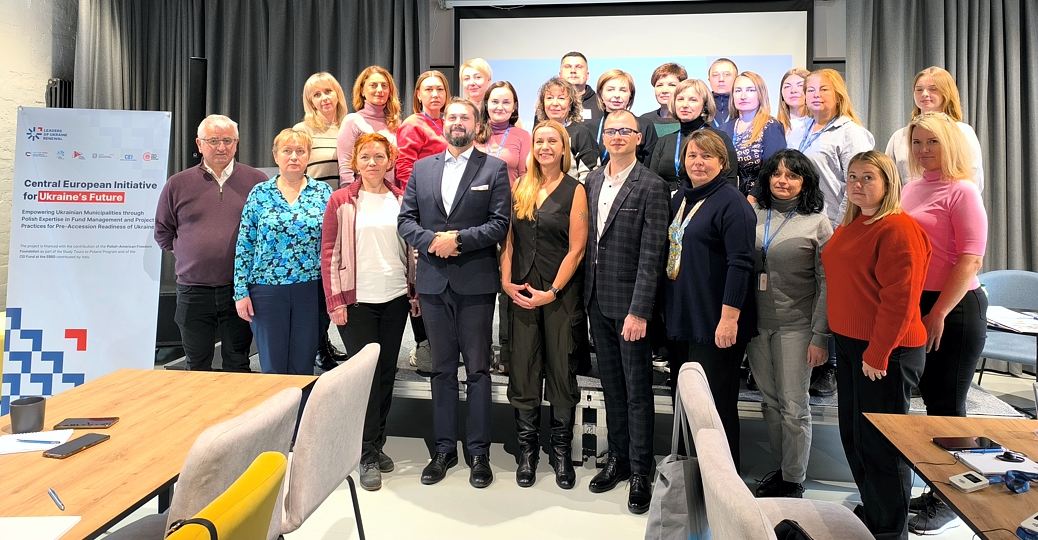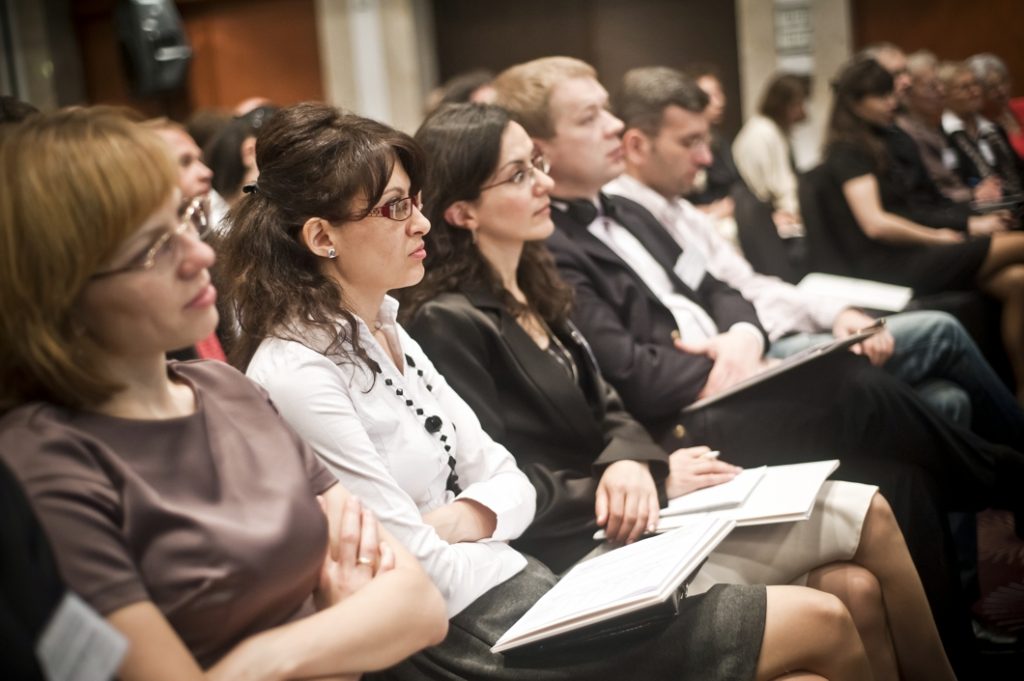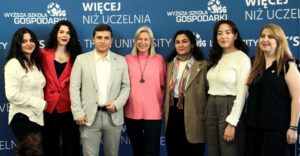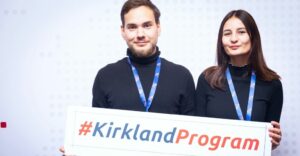The closing ceremony of the 16th Lane Kirkland Scholarships Program took place on 29 June in the Ballroom of the Tyszkiewicz Palace of the University of Warsaw. Diplomas were awarded to 45 scholarship holders who joined the almost 700-strong group of all Kirkland Program alumni to date. Dr Paweł Kowal, former Secretary of State at the Ministry of Foreign Affairs and Member of the seventh-term European Parliament, participated in the meeting as special guest.
The closing ceremony of the 16th Lane Kirkland Scholarships Program took place on 29 June in the Ballroom of the Tyszkiewicz Palace of the University of Warsaw. Diplomas were awarded to 45 scholarship holders who joined the almost 700-strong group of all Kirkland Program alumni to date. Dr Paweł Kowal, former Secretary of State at the Ministry of Foreign Affairs and Member of the seventh-term European Parliament, participated in the meeting as special guest.
The welcome address was given by the Program Director of the Polish American-Freedom Foundation Renata Koźlicka-Glińska, who congratulated graduates on completing the program and obtaining their diplomas. She also thanked them for making Poland their country of choice for studying and gaining professional knowledge, as well as their willingness to learn from Polish experiences.

The further part of the opening speech was devoted to presenting a new organization: the Leaders of Change Foundation (FLP), established by the Polish-American Freedom Foundation. Starting from the 2016/17 academic year, the Leaders of Change Foundation will assume the role of manager of, first, the Kirkland Program and, afterwards, the “Study Tours to Poland” Program. Another task of the FLP will be to develop other scholarship, traineeship and study instruments, to the extent possible. The previous Kirkland Program manager, the Education for Democracy Foundation (FED), received recognition for its involvement, professionalism and successful fulfillment of its mission.

Dr Paweł Kowal, historian and Polish politician, gave a lecture on “Different collective memories of communism in Poland, Russia, Ukraine, Belarus and Kazakhstan”, where he outlined the historical background and its effects on the transitions currently taking place in Eastern Europe. “One of the factors contributing to a state’s stability and development is the existence of a robust foundation formed by that state’s identity and the knowledge and understanding of its own history” said dr Kowal. The lecture was followed by a discussion with participants.
A total of 45 alumni of the 16th Kirkland Program received diplomas from the Minister Paweł Kowal, the Vice-President of the Education for Democracy Foundation Anna Kertyczak and the Program Director Renata Koźlicka-Glińska. Fourteen alumni of the 16th edition graduated with honors.

The most important facts related to the completed edition of the program were presented by Urszula Sobiecka, the Lane Kirkland Program Officer. The majority of scholarship holders (33) was accounted for by representatives of Ukraine, three participants came from Russia, while Armenia, Azerbaijan, Georgia, Moldova and Kyrgyzstan catered for one participant each. The alumni of 2015/16 Lane Kirkland Program stemmed from various professional groups, among others: university lecturers, lawyers, civil servants, independent experts, journalists and NGO leaders.

The most popular fields of study were law, followed by economics and management. Public administration, international relations and NGO management also attracted a lot of interest. Urszula Sobiecka extended thanks to the regional coordinators, the tutors and the social and cultural animators involved in the Program. She also informed about the results of the recruitment for the next academic year. In the 2016/17 year, the Program will welcome 46 participants from eight countries. Two scholarship holders qualified for the pilot “Kirkland Research Program” scholarship path. This initiative attempts to appease the need for medium-term research and scientific traineeships sought by those who already enjoy an established research position. Kirkland Research will be shorter than a standard program, i.e. will be one semester long, but its formula will be much more intense.
Apart from this year’s alumni, the diploma ceremony was attended by representatives of diplomatic posts: the Ambassador of Armenia Mr. Edgar Ghazaryan, the Councilor at the Embassy of Georgia Ms. Ketevan Esiashvili and regional Program coordinators based in five Polish university cities, tutors, including among others dr Iwona Kuczyńska of the AGH University of Science and Technology in Cracow and dr Andrzej Dumała of the Marie Curie-Skłodowska University in Lublin, as well as representatives of other universities which hosted program participants, the Program’s social and cultural animators and representatives of NGOs cooperating with the program.
The objective of the Lane Kirkland Scholarship Program, launched in 2000 by the Polish-American Freedom Foundation, is to share Polish experiences of political transformation with representatives of countries of Eastern Europe, the South Caucasus and Central Asia by offering two-semester complementary studies in five Polish university cities. Under individual study courses, the scholarship holders study selected aspects of economics and management, public and business administration, law, as well as social and political sciences. The program also includes an introductory meeting during which knowledge of Poland is provided, thematic integration gatherings covering social and civic issues, as well as internships at state institutions and private sector firms. Following the program’s completion, contact with graduates is regularly maintained through various initiatives, among others: alumni reunions, conferences and the program bulletin. From 2000 to 2016 (including the 2015/2016 edition), 699 scholarship holders completed the Kirkland Program. The majority of alumni come from Ukraine, Belarus, Georgia and Russia. Between 2001 and 2013 the program was managed by the Polish-U.S. Fulbright Commission. In the years 2013-2016, this role was entrusted to the Education for Democracy Foundation.









